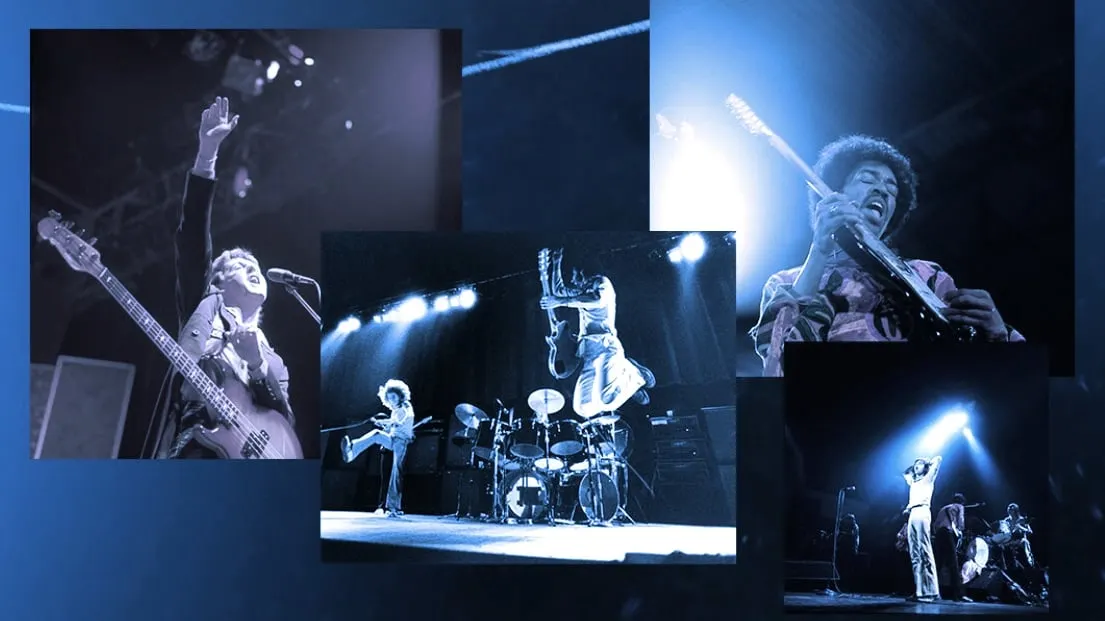When Candy Digital launched in 2021, the NFT firm came out swinging with its official line of Major League Baseball collectibles. Stepping up to the plate again, this time with Getty Images, the company is now searching for its next potential hit.
After sifting through Getty’s expansive archive of stock photos, Candy has curated a collection of photos centered on some of the most influential musicians of the ‘70s and the photographers that captured them, including rock icons like Elvis Presley, John Lennon, and James Brown.
The collection will launch via an open-edition mint scheduled on March 21. The launch comes after a partnership between Candy and Getty was originally unveiled last May.
The firm has launched multiple collections related to sports and entertainment in the past—securing licenses with companies like Netflix and World Wrestling Entertainment (WWE)—but tapping Getty is aimed at appealing to fans of music and photography—a new market, Candy CEO Scott Lawin told Decrypt.
“We’re really excited about the fact that we're talking to a different type of audience,” he said. “The way we've thought about our partnerships, it really is creating opportunities for people not to just go deep in a category that they love, but also discover and collect across different types of content and IP.”
While academic research has suggested that sports fans are more likely to own digital assets, Lawin described the partnership with Getty as a long-term relationship that Candy will seek to build on over time, noting that Getty’s archives contain millions of photos—some that are decades old and span a variety of subjects.
A distinct aspect of the collection is that it’s organized around six photographers, such as David Redfern and Fin Costello, as opposed to music talents like the Rolling Stones or Jimi Hendrix. And instead of being limited to a certain quantity, the collectibles that are priced from $25 to $200 get their scarcity through a months-long mint availability window.
Candy burst onto the Web3 scene at a time when the digital assets industry was flourishing, but its fortunes have shifted over time amid an overall decline in consumer appetite for crypto and NFTs.
The company was founded in June 2021 by Michael Rubin, executive chairman of the sports franchising company Fanatics, in combination with NFT entrepreneur Gary Vaynerchuk and Galaxy Digital founder and CEO Mike Novogratz. Fanatics was a majority owner in the firm.
A handful of months after it launched, Candy touted a $1.5 billion valuation in October 2021 after the firm said it had raised $100 million in a Series A round led by Insight Partners and Softbank’s Vision Fund 2.
However, the NFT firm has not been spared by the chills of crypto winter, laying off more than a third of its 100 workers last November, as first reported by Sportico. Other NFT marketplaces like OpenSea have also been forced to make job cuts, along with Dapper Labs, creators of NBA Top Shot and NFL All Day.
This January, Fanatics stepped away, selling its 60% share in Candy to a group of investors led by Galaxy Digital, including ConsenSys Mesh and equity fund 10T Holdings. (Disclosure: ConsenSys Mesh is one of 22 investors in Decrypt.)
In a Fanatics memo seen by Decrypt, Rubin wrote that NFTs are unlikely to succeed as a standalone business amid an “imploding NFT market that has seen precipitous drops in both transaction volumes and prices for standalone NFTs.”
Regardless of the two parties' different outlooks on digital collectibles, Lawin said Fanatics was a “fantastic partner to get started with, particularly because we leaned in first into the sports space,” adding that the sale was a natural shift during a challenging market.
NFTs are unique digital tokens that are used to convey ownership of an item, often digital art. While most NFTs can be traded on a variety of marketplaces, Candy’s are restricted to the firm’s marketplace built on Palm—an Ethereum sidechain. However, Lawin described the limitation as something that will likely change down the line.
“Part of our roadmap [is] to allow our customers to take custody of their assets and potentially trade those in different marketplaces,” Lawin said. “It isn't going to be a flip of the switch. It's going to be something that we're spending a lot of time internally with our technology partners, our communities, and our IP partners to do in the right way.”

